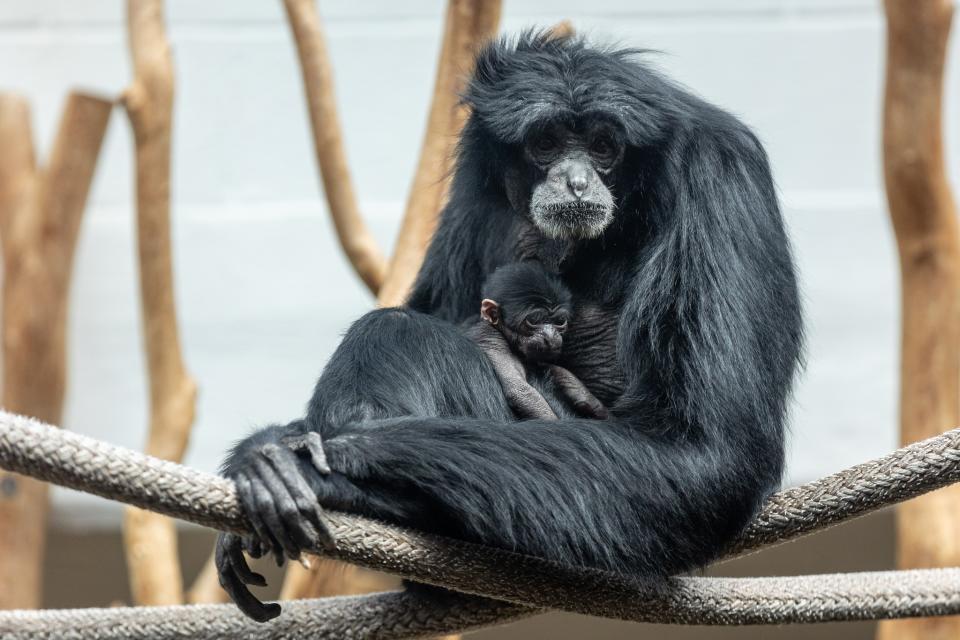Endangered Primates Heard “Singing Together” After Rare Birth in Captivity
Sing Out
On the morning of March 15, workers at The Virginia Zoo in Norfolk arrived to find that one of the facility's endangered siamang gibbons had given birth — and soon, the primates were heard literally singing the baby's praises.
In a Facebook post about the new addition, the zoo announced that mother Malana and father Bali welcomed the new baby, whose sex is not yet confirmed, earlier this month.
"While [zookeepers] suspected Malana could be pregnant due to recent behavioral and physical changes," the post reads, "they were not able to know for certain without extensive testing."
Siamangs are known both for their extremely close-knit familial ties and for their song-like vocalizations that occur when they inflate their bulbous, pinkish throats. As The Virginia Zoo wrote in its post, both of those behaviors were on display following the birth of the as-yet-unnamed baby.
"The whole family has been heard 'singing' together," the post continued, "a behavior which helps solidify family and social bonds."

Destructive Habitat
Native to the tropical rain forests of Malaysia, Thailand, and Sumatra, the global siamang population has, as the Los Angeles Zoo explains, decreased 50 percent over the past half-century as humans wiped out an estimated 80 percent of their natural habitats for logging, mining, and the construction of coffee, palm oil, and rubber tree plantations.
Although there are still some left in the wild, many siamangs are also born in captivity as conservationist groups like the Gibbon Species Survival Plan, which according to Richmond's WTVR coordinated with The Virginia Zoo, work with accredited facilities to give repopulation recommendations.
As zookeepers told the CBS affiliate station, this is Malana's fourth birth and also the fourth time a siamang has been born at the facility, meaning that at the age of 35, she is considered an experienced but aging mother.
Unlike some other species, fathers play an important role in raising baby siamangs, and zookeepers noted that Bali and the new baby's older brother Lovejoy "have been calm and curious around mom and baby, taking turns grooming Malana."
"The birth of any endangered species is always a cause for celebration," Emily Snicker, the zoo's director of communications, told the local broadcaster. "We are thrilled to see the group bonding and supporting each other, and we feel privileged to have a front-row seat as this baby grows into an energetic young siamang."
More on interesting animals: Antarctic Base Seeks Penguin Counter


